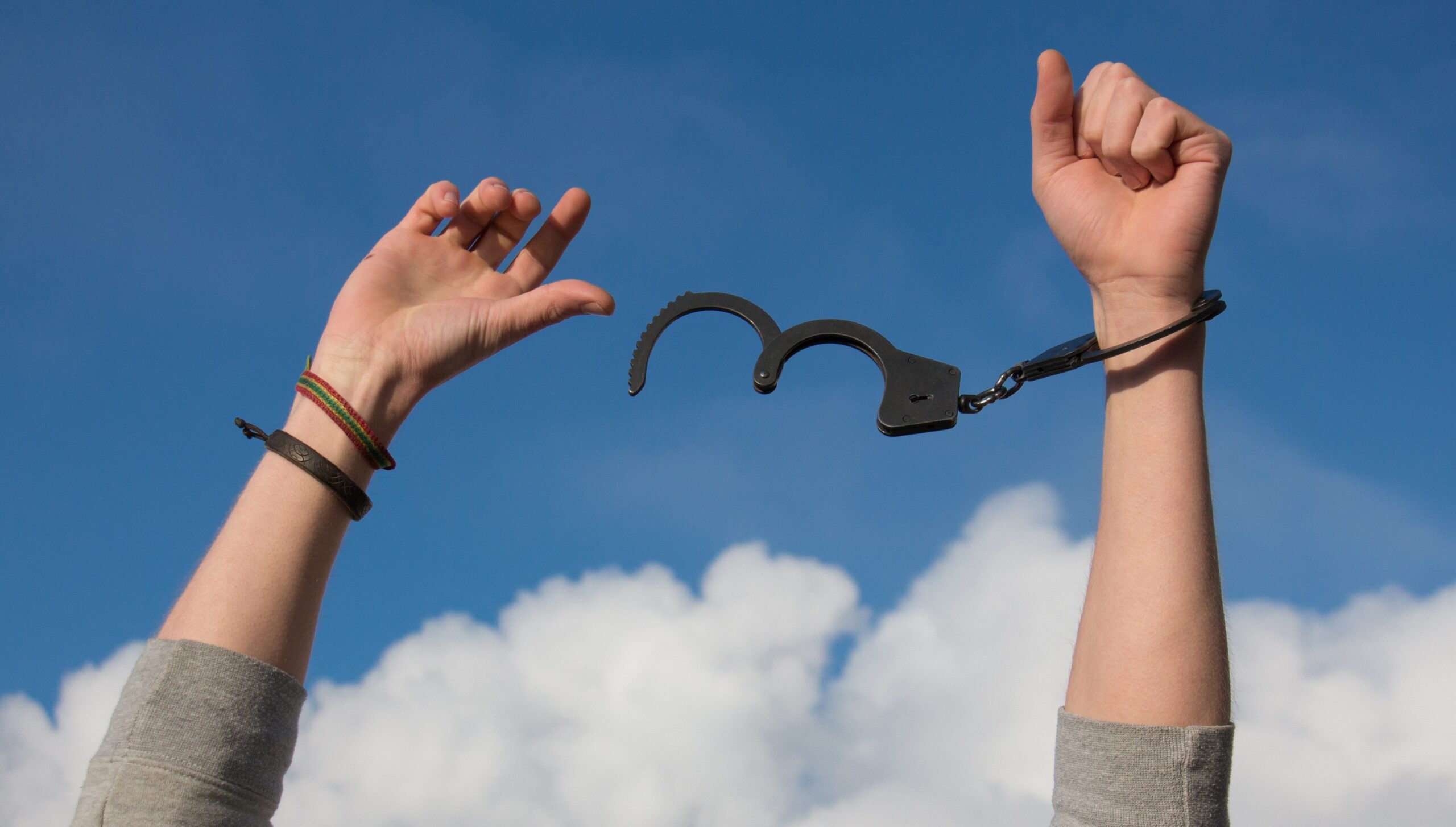With the U.S. and the world continuing to fight the Covid-19 pandemic, the sad developments in Afghanistan, and the current unsettling political zeitgeist that has taken over our country, I’ve been thinking a lot about freedom and what it means in our lives. You would think that, given that it is a central principle on which our democracy was founded (e.g., freedom of speech, religion, press, etc.), it would be a unifying force in the U.S. Yet, as we all know, its meaning is not only not agreed upon, but it is also a source of significant friction and outright hostility among the disparate ideologies that dominate our strangely tribal identities.
In pondering the meaning of freedom in this disquieting time, I have come to see what I believe are three freedoms that are essential to fulfilling the constitutional promise of “life, liberty, and the pursuit of happiness.”
Physical Freedom
“Physical freedom” translates into physical health and vitality. The freedom to have control over our bodies, feel physically vigorous, the freedom to move about and manipulate our world, the freedom from physical pain and suffering, and the freedom to experience physical pleasures such as eating, sleeping, dancing, exercising, to challenge ourselves in sports, and, yes, making love, all come from this fundamental freedom.
Without our physical health, I’m not sure it is possible to be truly free because we become prisoners of our own bodies and their limitations. This freedom comes first because without the freedom that physical health and well-being provides, we can’t readily experience any other forms of freedom.
With a nod to Maslow’s Hierarchy of Needs, our physical freedom is taken away from us when we experience stress, illness, injury, hunger, thirst, or exposure to the elements. Because we are physical beings before anything else, our focus turns inward to protect ourselves from this loss of physical freedom. We lack the resources— healthy food, safe water—to nourish our bodies. We lose control of our most basic physical functions. We suffer the discomfort and pain of physical ailments. By necessity, we become pre-occupied with the physical harm that we have incurred and the constraints it has placed on us because of the simple reality that we can’t escape our bodies. In both reasonable and extreme ways, we attempt to mitigate that the loss of physical freedom by, first, denying that loss and then looking for ways to assert authority over our bodies and reestablish physical freedom. Some attempts are helpful and productive, for example, using meditation, hypnosis, massage, homeopathic remedies, and medication. Other attempts at regaining our physical freedom, paradoxically, result in our losing even more of the physical freedom that we so covet, for instance, through abuse and addictions of all sorts, including eating disorders, alcohol, and drug use, and, for the last 18 months, ignoring sensible and evidence-based guidelines to stop the spread of Covid-19.
The loss of physical freedom is one reason why the Covid-19 pandemic has been so unsettling for so many people. In addition to the serious health consequences of contracting the virus, we have lost our ability to exert dominion over our own bodies; instead, needing to comply with mandates, rules, and guidelines that, for all intents and purposes, took away from us a significant degree of freedom to determine what we do with our bodies. I believe that the dictates placed on us by the C.D.C. and state and county health departments were reasonable and necessary to stem the transmission of Covid-19; we had to temporarily trade one set of physical freedoms for another set for our own safety and for the public good, so fewer of us would lose our ultimate freedom, namely, the freedom to live. Yet, the costs to this trade-off have been significant for many people in many ways, ranging from turning vaccines into an ideological and political football and vaccine refusal to physical isolation and reduced access to medical care.
Psychic Freedom
“Psychic freedom” (where “psychic” is defined as relating to the mind or soul) involves freedom from negative mindsets and emotions that can arise from our life experiences beginning in childhood. Psychic freedom can be taken from us by our parents, peers, influential others, natural disasters, political conflict, and our toxic popular culture, just to name a few, in the form of neglect, abuse, trauma, unhealthy messages, and pressure to conform. We lose our psychic freedom when we adopt values (e.g., “I must look perfect”), attitudes (e.g., “I cannot fail”), and beliefs (e.g., “I’m not worthy of love”) that make us unhappy, prevent us from fostering our physical and mental health and well-being, act as roadblocks to our dreams and goals, and interfere with our establishing healthy and nurturing relationships. To our very being, the loss of psychic freedom inhibits us from giving self-love (the good kind), self-validation, and self-care, recognizing value in who we are and what we can bring to the world, seeing and engaging our strengths in pursuit of our life’s aspirations, and expressing our true self. I call psychic freedom the Holy Grail of our internal lives.
I come to psychic freedom from both professional and personal perspectives. My work with clients is, at its heart, about helping them to find their psychic freedom. This process explores who or what has taken their psychic freedom away from them and how they can regain it. It has to do with letting go of the past baggage (i.e., unhealthy values, attitudes, and beliefs) that has hijacked their psychic freedom, allowing them to experience and release the painful emotions that were triggered by the baggage and that have held them captive for so long, and accepting and embracing their basic goodness and their imperfections as human beings.
I have also been seeking psychic freedom in my own personal life’s journey. In fact, over the past two years, I’ve entered a new phase in my life where I have found an inner peace that springs from this psychic freedom. In the past, my mind would obsess on unhappy thoughts and feelings, judging myself, and anticipating bad outcomes. Now, I notice my renewed psychic freedom when I’m out for a run, walking my dog, or going to bed at night; my mind is clear, calm, and contented. I’m acutely aware of this psychic freedom when I am confronted by the daily challenges that are a normal part of the human condition. Whereas in the past, I would stress, ruminate, and self-flagellate, now I accept and respond to the challenges with equanimity and resolve. In this new phase of my life, there is a strange and wonderful ease and serenity, a mind and heart clear of negativity and clutter, and one that sees possibilities and opportunities rather than threats and barriers. Psychic freedom means being liberated from doubt, worry, angst, fear, anger, avoidance and other negative mindsets, emotions, and behaviors. It also means being free to perceive life as a challenge and an opportunity to pursue with courage, confidence, commitment, and vigor.
Relational Freedom
“Relational freedom,” paradoxically, involves sacrificing some freedom to experience this ultimate freedom. Relational freedom refers to the benefits of building strong connections, healthy relationships, and shared experiences in the concentric circles of family, friends, community, and country. Admittedly, we give up some personal freedom with relational freedom because we are no longer only accountable to ourselves. The freedom we surrender relates to having the spotlight always on ourselves and a pre-occupation with putting our own needs and desires first. Yet, what we lose in some freedoms is easily made up for with the addition of other freedoms.
Relational freedom involves the understanding that when we feel and take responsibility not only for ourselves, but also for others around us (and they for us), we actually gain freedom because we feel safer and more secure, valued, and supported by others. We can be more, experience more, and do more through the network of connections we establish with others. With relational freedom, we are more willing and able to live a fulfilling life, take healthy risks, and strive toward our dreams because we don’t feel alone in our journey and know there are others who “have our back.”
Beginning at the concentric circle of country, relational freedom allows us to feel a sense of shared values and experiences, national identity, and collective pride (something that has been sorely missing in America for some time). This broader relational freedom gives us a common vision, united strength of purpose, and a buttressed resolve when faced with the national and global challenges that threaten us.
At the community level, whether in our neighborhoods, businesses, schools, houses of worship, or other civic and shared activities, relational freedom provides us with a sense of kinship, engages us in the world in ways that aren’t about us, and just the simple fact of being recognized and appreciated by people we see regularly. Relational freedom within our communities makes us feel connected, valued, respected, and, well, just plain less alone.
At the concentric circles of family and friends, relational freedom gives us something that may be the real sustenance that feeds our souls. Relational freedom means being with people who know you at the deepest level, the good, the bad, and, yes, the ugly that is also part of the human condition. Yet, despite our flaws (or perhaps because of them), family and friends love, embrace, and even celebrate who we are (as do we them). Relational freedom means feeling the deepest connection with a select few people on our planet and perhaps even finding our soulmate. This freedom provides us with the sense of safety and comfort that enables us to be open and vulnerable, knowing that such risks will be reciprocated in a virtuous circle of deeper connection and greater freedom. Relational freedom also becomes a “vibe” in which others sense that freedom and are drawn to embrace their own relational freedom and respond in kind.
Relational freedom also brings us another gift; we become liberated to not make our life just about ourselves. Without this freedom, we remain in a selfish state because we believe we need to protect ourselves against perceived threats, feel safe, and ensure that our needs, and, by extension, our survival is assured. Again paradoxically, when we can direct our attention to others and focus on their needs and goals rather than on our own, we experience a level of meaning, fulfillment, and joy that simply can’t be had when we are in “me” mode.
I call these three freedoms—physical, psychic, relational—the “Whole Enchilada” because when you have them, you have everything you need to lead a life of happiness, success, value, satisfaction, and connectedness. And living in this state of freedom, at the end of every day and at the conclusion of your life, you’ll be able to say what I believe is the ultimate freedom in our existence: “I’ve lived a life worth living.”



